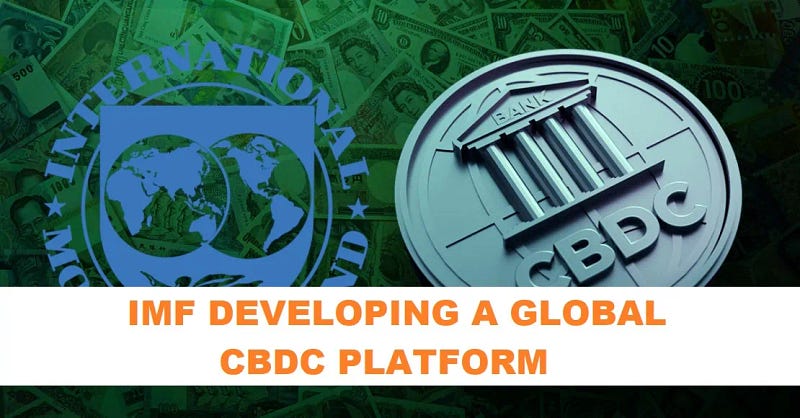Exploring the IMF's Global CBDC Platform Initiative
Written on
Chapter 1: Understanding the IMF's Role
You might be wondering, who exactly is the IMF, and why should their activities matter to you? Let's dive in and explore their relevance, especially regarding Central Bank Digital Currencies (CBDCs).
The International Monetary Fund (IMF) serves as a financial agency of the United Nations and comprises 190 member countries, which is nearly all of the 193 UN member states. Their mission is clear: “to foster global monetary cooperation, secure financial stability, facilitate international trade, promote high employment and sustainable economic growth, and reduce poverty worldwide.” While these goals sound commendable, there are various approaches to achieving them.
Recently, the IMF has unveiled plans for a global cryptocurrency platform.
This initiative primarily aims to create an ecosystem that encourages financial inclusion, improves payment system efficiency, and speeds up cross-border transactions and remittances. Additionally, it appears that the platform will include a programmable layer, allowing individuals and companies to develop various applications. If you're curious about more details, I've linked the relevant post below.
This initiative seems promising, ensuring that no one is left behind when it comes to domestic and international transactions. However, the narrative takes a concerning turn as the IMF praises CBDCs, almost elevating them to the status of the next greatest innovation. Herein lies my skepticism. Although CBDCs have potential benefits, their drawbacks may overshadow the positives.
Section 1.1: The Implications for CBDCs
Kristalina Georgieva, the IMF’s managing director, recently spoke at a conference for Africa’s central banks, emphasizing the need for a unified approach to CBDCs. Unfortunately, it seems that an outright ban on CBDCs is not on the horizon. This collaborative strategy likely refers to the Global Cryptocurrency Platform under development. Given the extensive involvement of numerous countries, it's hard to imagine that any single nation could successfully develop and compete with their system. While countries like China and the United States may pursue their versions, I fear these will mainly serve as instruments of power and control for those nations, leading to their limited usage.
This development is significant for the future of CBDCs, suggesting that cryptocurrencies might eventually become mere historical references—something future generations will study and ponder the implications of.
What are your thoughts on the rapidly approaching global CBDC landscape? I invite you to share your opinions in the comments below.
If you appreciate my content, consider following me or checking out my other posts. I've also recently joined Medium as a partner, so signing up through my referral link or following me there would be greatly appreciated.
See you online!

Chapter 2: Insights from Global Experts
This video titled "IMF looking at global platform for digital currencies | World Business Watch" provides insights into the IMF's exploration of a global digital currency platform, discussing its potential impact on international finance.
In the video "Central Bank Digital Currencies for Financial Inclusion: Risks and Rewards," experts delve into the opportunities and challenges presented by CBDCs, examining their role in promoting financial inclusion.